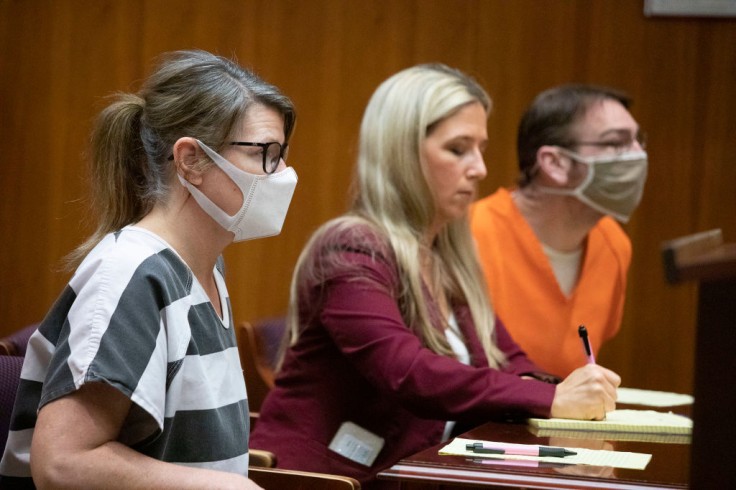
The proceedings begin with a discussion of whether the shooter and his psychiatrists would be allowed to testify.
Defense attorney Shannon Smith advocated for their testimony, emphasizing the relevance of specific text messages presented in court. These messages, exchanged between the shooter and a friend, detailed his mental health struggles and his assertion that his parents were not providing the necessary assistance.
Oxford High School Shooter's Mental Health Challenges
During the shooter's Miller hearing, he acknowledged that his parents were unaware of his mental health challenges and his plan for the shooting.
Smith argued for the exclusion of certain statements, citing a lack of legal precedent and the inability to effectively defend them.
The jury delved into the family's digital records on Friday, with the prosecution aiming to establish a case suggesting that Jennifer Crumbley overlooked warning signs that could have prevented the tragic shooting.
Prosecutors emphasized that being negligent parents is not a criminal act but aimed to demonstrate a pattern wherein the shooter sought help from his mother, who allegedly took no action.
Testimonies From Witness
On Friday, the initial witness was a former detective and expert in computer crimes from the Oakland County Sheriff's Office, Edward Wagrowski.
During his testimony, Wagrowski discussed his proficiency in computer crimes and the analysis of cell phone data. He recounted his emotional experience heading to the vicinity of Oxford High School after the shooting, where he observed students walking towards the nearby Meijer location.
Expressing his deep emotion, he described seeing kids who resembled his own, including one with a missing shoe, walking through the snow.
Wagrowski also shared details of his visit to the school later, highlighting the presence of 90 surveillance cameras at Oxford High School.
He explained his role in identifying the shooter and the process of reviewing footage from hallways, retracing steps to reconstruct the events.
Wagrowski provided a detailed account of what the surveillance video revealed about the unfolding of the shooting on November 30, 2021, emphasizing the lasting impact it had on him, stating, "It's etched in my memory."
The court heard from Wagrowski, who analyzed data from seven phones collected from the shooter and his parents.
The prosecution highlighted messages from March 2021, where the shooter expressed fear and discomfort to Jennifer Crumbley, who seemingly ignored these concerns while engaged in other activities.
The defense contested these claims and later showed the jury how Jennifer Crumbley and her husband responded in the aftermath of the shooting, including the deletion of messages while they were on the run.
Trial for Jennifer Crumbley Begins
The trial began with opening statements on Thursday, featuring four witnesses, including a teacher and an assistant principal who encountered the shooter during the incident.
The defense, led by Shannon Smith, criticized the prosecution's approach, using Taylor Swift's "Bad Blood" to illustrate their argument that superficial solutions wouldn't address the underlying issues.
The defense maintained Jennifer Crumbley's lack of knowledge about the shooting's inevitability and argued that school officials permitted her son to stay at school on the day of the incident.
Over the next two weeks, the prosecution targets to call 20-25 witnesses.
The trial follows the involuntary manslaughter charges who are accused of buying the gun used in the shooting and failing to provide necessary help against Jennifer and James Crumbley.
The shooter received a life sentence without parole in December 2023.